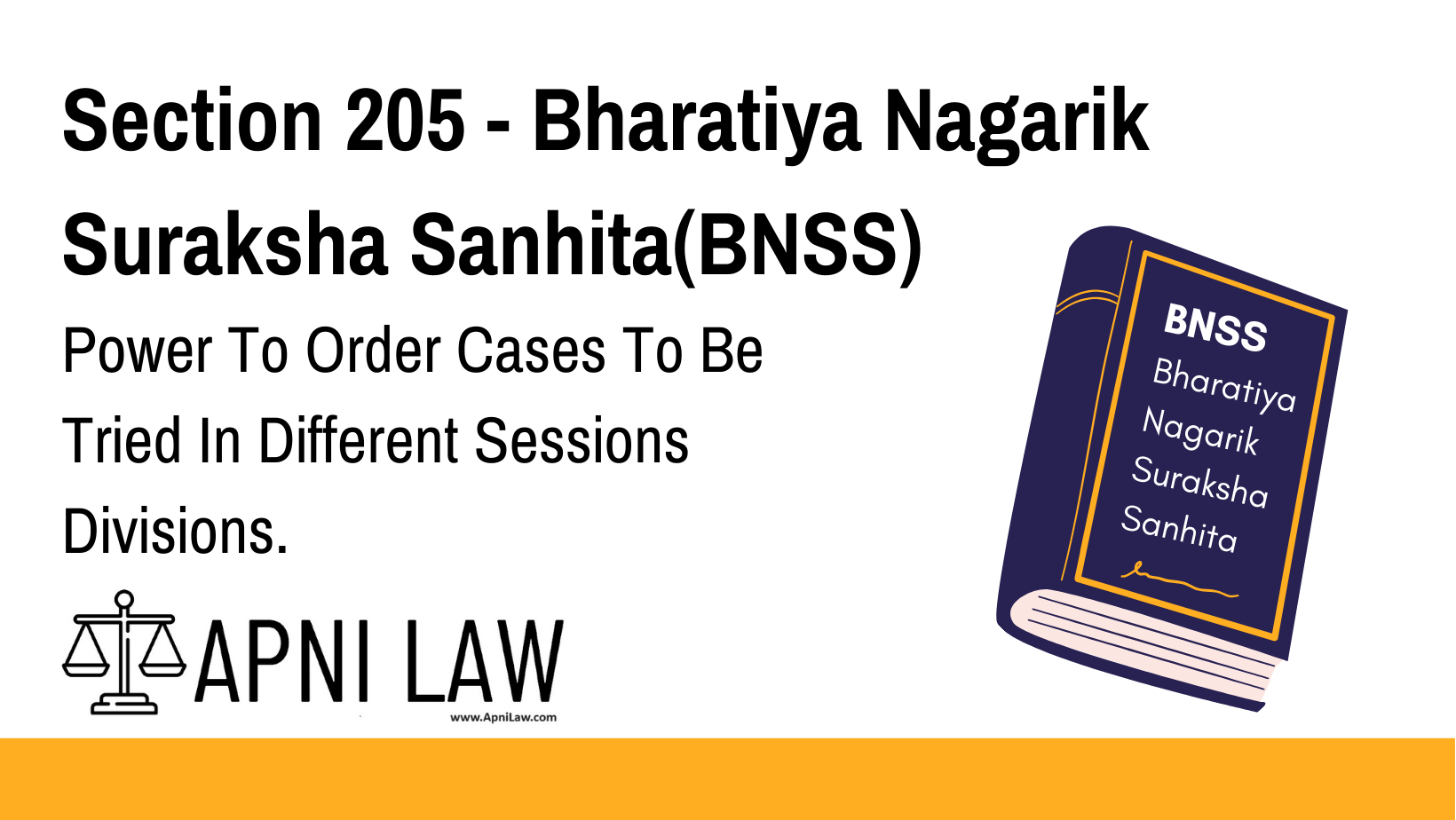Code:
Notwithstanding anything contained in the preceding provisions of this Chapter, the State Government may direct that any case or class of cases committed for trial in any district may be tried in any sessions division:
Provided that such direction is not repugnant to any direction previously issued by the High Court or the Supreme Court under the Constitution, or under this Sanhita or any other law for the time being in force.
Explanation:
This section grants the State Government the power to direct that certain cases or categories of cases, initially committed for trial in a specific district, can be tried in a different sessions division within the state. However, this power is subject to certain limitations:
The State Government’s direction must not conflict with any previous directions issued by the High Court or Supreme Court under the Constitution, the BNSS itself, or any other law currently in effect.
Illustration:
Imagine a situation where a case involving organized crime is registered in District A, but the evidence and witnesses are primarily located in District B, which falls under a different sessions division. The State Government, in its discretion, can issue a direction allowing the trial to be conducted in District B’s sessions division, facilitating a smoother and more efficient judicial process.
Common Questions and Answers:
- Q: Can the State Government transfer cases from one district to another without any restrictions?
A: No, the State Government’s power is limited by the requirement direction must not be contrary to any existing orders. This is from the High Court or Supreme Court or other laws.
- Q: What is the rationale behind allowing the State Government to transfer cases?
A: This provision aims to promote judicial efficiency and ensure fair trials. State Government are enabled to transfer cases to more suitable locations based on factors like witness availability, evidence location.








